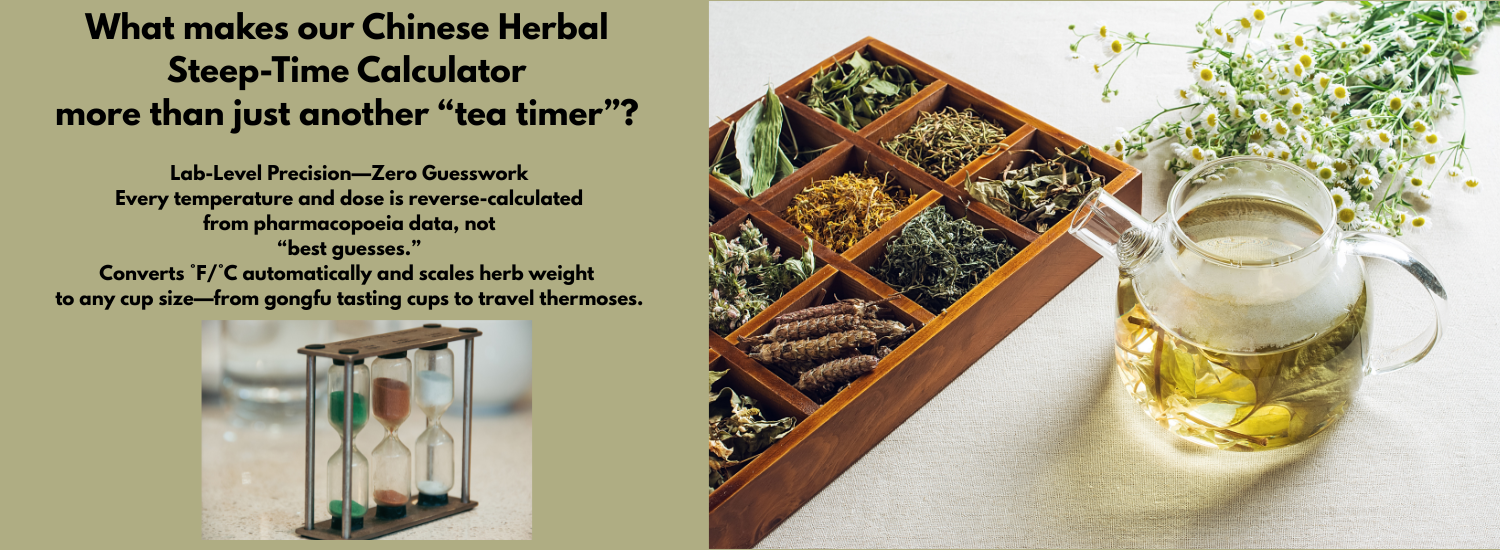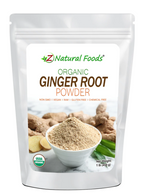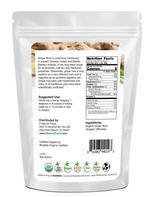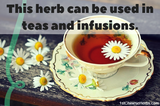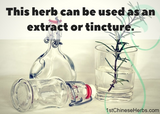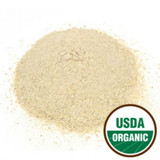Herbal Information for Ginger Root Powder
The Organic Ground Ginger Root offers an authentic warm flavor and a distinctive aroma, which has contributed to the spice's popularity in both sweet and savory dishes. The medicinal properties of organic ginger root make it an essential item for any herbalist's apothecary.
Common Name: Ginger Root, Ginger, Dried Ginger Root
Botanical Name: Zingerberis officianalis
Pin Yin Name: Sheng Jiang, Gan Jiang
![]()
Ginger root offers a plethora of health benefits.
-
Digestive Aid: Ginger is renowned for its ability to soothe digestive issues such as nausea, indigestion, and bloating. It can stimulate saliva production and digestive enzymes, helping to break down food and alleviate discomfort.
-
Anti-inflammatory Properties: Ginger contains compounds like gingerol, which have potent anti-inflammatory effects. These compounds can help reduce inflammation in the body, potentially alleviating symptoms of conditions like arthritis.
-
Immune Booster: Ginger is rich in antioxidants, which can help strengthen the immune system by neutralizing harmful free radicals. Consuming ginger regularly may help reduce the risk of infections and support overall immune function.
-
Relief from Motion Sickness: Ginger has long been used as a natural remedy for motion sickness. Whether you're traveling by car, boat, or plane, consuming ginger in various forms such as ginger tea or ginger candies can help alleviate nausea and dizziness associated with motion sickness.
-
Pain Relief: Some studies suggest that ginger may have pain-relieving properties, making it beneficial for conditions like menstrual cramps, migraines, and muscle soreness. Its anti-inflammatory effects may contribute to its pain-relieving properties.
-
Heart Health: Ginger may help promote heart health by lowering blood pressure and cholesterol levels. Studies have shown that ginger extract may help reduce LDL (bad) cholesterol levels and improve overall cardiovascular health.
Ginger In The Kitchen
Incorporating Ginger Root into your diet can be simple.
Zingiber officinale, commonly known as ginger, is a fragrant tropical herb cultivated in numerous equatorial nations. This spicy and invigorating root has been utilized for centuries to add flavor to dishes and drinks. The organic dried ginger can be transformed into syrups, brewed into ginger tea, incorporated into herbal remedies, and used for tinctures.
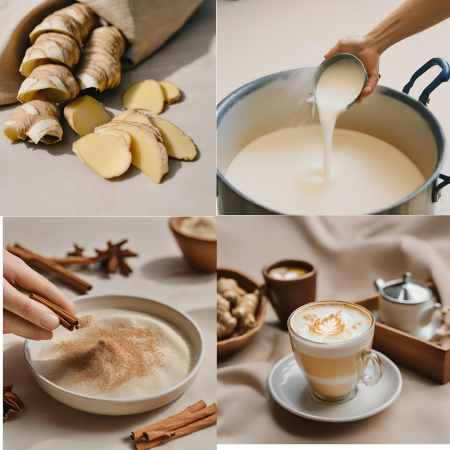 Here's a simple recipe for a Ginger Turmeric Latte using ginger root powder:
Here's a simple recipe for a Ginger Turmeric Latte using ginger root powder:
Ingredients:
1 cup milk (dairy or plant-based)
1 teaspoon ginger root powder
1/2 teaspoon turmeric powder
1 tablespoon honey or maple syrup (adjust to taste)
1/4 teaspoon ground cinnamon (optional)
Pinch of black pepper (enhances turmeric absorption)
1/2 teaspoon vanilla extract (optional)
Instructions:
- In a small saucepan, heat the milk over medium heat until it starts to steam. Do not boil.
- Stir in the ginger root powder, turmeric powder, honey or maple syrup, cinnamon (if using), black pepper, and vanilla extract.
- Whisk continuously until the mixture is well combined and heated through. This should take about 3-5 minutes.
- Once heated to your liking, remove the saucepan from the heat.
- Carefully pour the latte into a mug, using a fine mesh strainer if you prefer a smoother texture.
- Optionally, sprinkle a little extra cinnamon or ginger powder on top for garnish.
- Serve hot and enjoy your delicious Ginger Turmeric Latte!
Feel free to adjust the sweetness and spices according to your taste preferences. This cozy beverage is perfect for warming up on chilly days and also offers the health benefits of ginger and turmeric.
Other Ways To Use Ginger Root
-
Culinary:
- Used in cooking to add flavor to dishes, especially in Asian cuisine.
- Can be pickled and used as a condiment.
- Added to tea, soups, stir-fries, marinades, and salad dressings.
-
Beverages:
- Ginger tea: Made by steeping sliced ginger in hot water.
- Ginger ale: A carbonated soft drink flavored with ginger.
- Ginger beer: A non-alcoholic beverage made from fermented ginger extract.
-
Medicinal:
- Used to aid digestion and relieve nausea.
- Commonly used as a natural remedy for colds and sore throats.
- Anti-inflammatory properties may help reduce pain and lower blood sugar levels.
- Ginger Syrups
- Ginger Teas made from a decoction
- Compress
Note Worthy To Mention About Ginger
Ancient Remedy: Ginger has a long history of medicinal use, dating back thousands of years. It has been used in various traditional healing systems, including Ayurveda and Traditional Chinese Medicine, to treat a wide range of ailments, from digestive issues to respiratory problems. Its popularity as a natural remedy has persisted throughout the ages and continues to this day.
History of Ginger
First known mention in the Chinese herbal text Shen Nong Ben Cao Jing around 2,000 B.C.E. and the Mahabharata, an ancient Sanskrit text from India around 400 B.C.E. In the Mahabharata, a recipe with stewed meat and ginger is mentioned. In Ayurveda, ginger is referred to as shunthi or sunthi in Sanskrit, possibly derived from an ancient city mentioned in the Ramayana, an epic Indian text from the same period as the Mahabharata. By 200 B.C., this city had become a major hub for the ginger trade.
Ginger, a member of the Zingiberaceae family along with turmeric and cardamom, is a tropical plant with a fleshy rhizome that is often mistaken for a root. Although its exact origins are unclear, it is believed to be native to tropical Asia. Ginger is widely cultivated in many tropical countries and was introduced to the West Indies and Mexico by the Spaniard Francisco de Mendosa in 1547. Before this, ginger in Europe was obtained from Arab spice traders.
Culinary Versatility: Beyond its medicinal properties, ginger is a versatile culinary ingredient that adds a unique flavor and aroma to dishes. It is used in various cuisines worldwide, from Asian stir-fries and curries to Caribbean jerk marinades and European baked goods. Whether fresh, dried, powdered, or in the form of ginger extract, this spice adds a zingy and spicy kick to both savory and sweet dishes, making it a staple in many kitchens around the globe.
Lab Tested: Yes
Other Ingredients: None, nothing has been added to this product.
Package Size: One Pound (1lb)
Form: Fine powder
Dosage: Consult your healthcare professional for correct dosage.
Origin: China
Brand: Z Naturals
Cautions: Do not use if pregnant or nursing.
California Prop 65
Product Properties: Acrid, Hot
Channels/Meridians: Heart, Lung, Spleen, Stomach
Naturally Occurring Chemical Components: Vitamins B1, B2, B3, B5, B6, Folate, Vitamin E, Trace Minerals, Evaporating oils, 6-gingesulfonic acid, angelicoidenol-2-O-β-D-glucopyranoside, gingerglycolipid A, B, C
SUMMARY OF HOW TO USE GINGER POWDER AND IT'S HEALTH BENEFITS
- Fragrant Cooking Spice
- Used all over the world for both cooking and medicine
- Species started in the rainforest and has spread over the world
- This is the same ginger you find in ginger ale, but also in popular Indian dishes
- Eases symptoms of nausea (1)
- Temporary relief of pain related to menstruation (2)
- Eases muscle pain related to exercise (3)
- Supports Digestion
- Traditional Chinese Tonic
- Supports Healthy Circulation
Check out our How to Use Bulk Herbs page to see how to use herbs correctly. Our web page is constantly expanding, as of today we have articles on:
- How to make salves, poultice, tinctures, teas, capsules, gargles, and foot bathes
- How to make a citrus facial splash
- Cayenne pepper: Caterpillar and aphid spray ( Natural insect repellent )
- Citrus potpourri basket
References:
(1) https://www.ncbi.nlm.nih.gov/pmc/articles/PMC3995184/
(2) https://www.ncbi.nlm.nih.gov/pubmed/19216660
(3) https://www.ncbi.nlm.nih.gov/pubmed/20418184
https://www.ncbi.nlm.nih.gov/books/NBK92775/
https://en.wikipedia.org/wiki/Ginger
https://herbpathy.com/Uses-and-Benefits-of-Ginger-Root-Cid288
https://en.wikipedia.org/wiki/Gan_Jiang_and_Mo_Ye
alternativehealing.org
https://www.hopkinsmedicine.org/health/wellness-and-prevention/ginger-benefits
https://www.ncbi.nlm.nih.gov/books/NBK92775/

